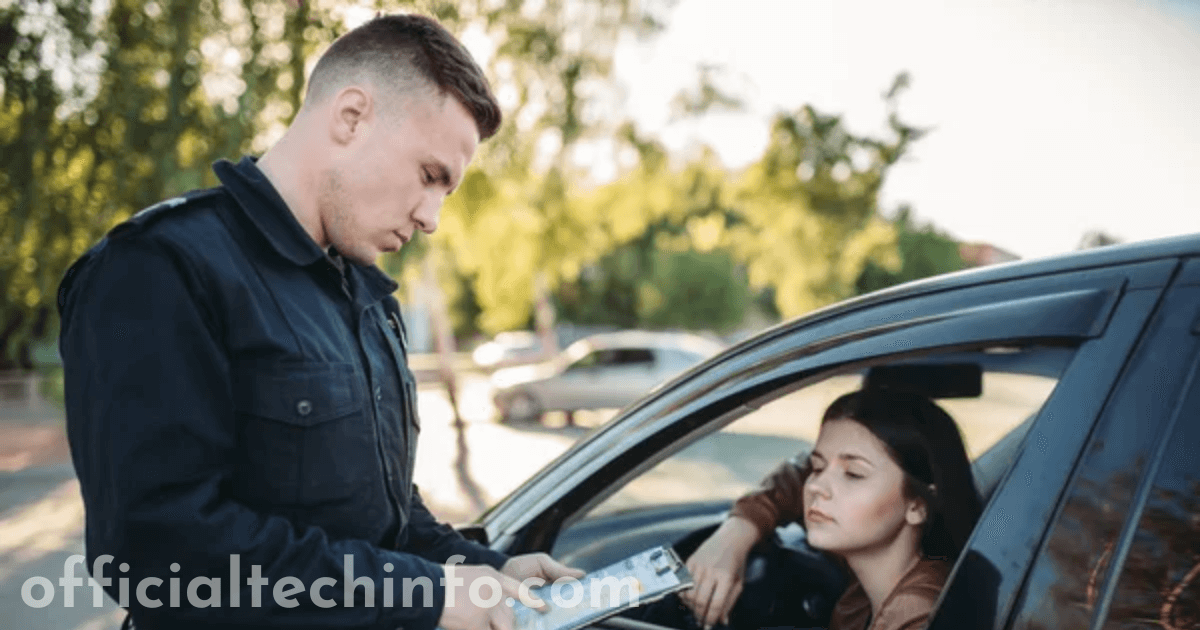Can a Cop Search Your Car Without a Warrant?
When police stop you it’s natural to worry can police have the authority to search your car without a warrant. the answer is complex and depends on several factors. In this blog post, we will explore the situations under which Can a Cop Search Your Car Without a Warrant. and what you can do if you are stopped and searched by police.
Legal Basis for Car Searches
In the United States, the Fourth Amendment of the Constitution protects people from being searched or taken by police without a valid reason.
In most cases, this means that police officers need a warrant backed by probable cause before they can search. But there are some exceptions to this rule, especially when it comes to searches of vehicles. Here is the complete guide to Where Can I Sleep In My Car If I’m Homeless?
When Can cops search your car without a warrant?
Probable Cause:
If police have a good reason that your car has evidence of the crime, they can search your car without a warrant. This can involve smelling drugs, seeing illegal goods right in front of you, or receiving accurate data from someone else.
Search Incident to Arrest:
If you are legally arrested during a traffic stop or another incident police may search your car without a warrant to keep it safe and keep evidence from being lost.
Consent:
If someone freely agrees to a search there is no need for a warrant. But it’s important to remember that you can say no to a search, and that doesn’t mean you’re guilty or did something wrong.
Exigent Circumstances:
Officers can search a vehicle without a warrant in emergencies where there is a direct threat to public safety or the loss of evidence.
Stop and Frisk:
This means that the police have the authority to stop and search you if they have a reasonable suspicion that you are involved in criminal activity.
This includes searching your person from head to heel for weapons or illegal items. However, if the stop-and-frisk procedure is not warranted, any evidence discovered during the search may be disregarded.
What to do if a cop asks to search your car
If a police officer asks to search your car, it’s important to know your rights and how to respond. Here’s what you should do:
Stay Calm:
To begin with, stay calm and collected. In these kinds of situations, it’s normal to feel nervous or anxious, but staying calm will help you think clearly and act in the right way.
Understand Your Rights:
You can say no to having your car searched. The Fourth Amendment to the US Constitution protects this right by saying that police can’t search or take things from people without a good reason.
Ask if You’re Free to Leave:
Ask the officer politely if it is okay for you to leave. You have the right to terminate the interaction and proceed with your journey if you are not being held or taken into custody.
Assert Your Rights:
You have the right to politely decline the officer’s request to search your vehicle. An acceptable response would be, “I do not consent to a search of my vehicle.”
Do Not Physically Resist:
It is essential to comply with the officer’s instructions and to refrain from engaging in any kind of physical altercation. It is possible that resisting could make the situation worse and result in legal repercussions.
Document the Encounter:
If you believe that your rights have been violated or that the search was carried out unlawfully, it is important to take note of important details such as the name of the officer, the number of their badge, and any witnesses who were present. If you choose to file a complaint or seek legal recourse at a later time, this information might prove to be helpful.
Follow Legal Procedures:
If the officer insists on searching you despite your refusal, you should comply with their instructions while continuing to demonstrate your right to refuse consent. Take a mental note of the specifics of the search so that you can refer to them in the future.
Seek Legal Advice if Necessary:
If you believe that your rights were violated during the encounter or if you are uncertain about the legality of the search, you should think about discussing the matter with a lawyer who specializes in either criminal defense or civil rights litigation.
Previous articles
- How to Get Weed Smell Out of Car? 10 Tips & Tricks
- How to Unlock Car Door Without Key | Top 5 Easy Ways
- 10 Reasons NOT to Lease a Car
Conclusions
- In most cases, police need a warrant to search your car, but there are some situations where they don’t.
- When you’re dealing with the police, it’s important to know your rights and how to politely assert them.
- Knowing your rights is the best way to protect your privacy and make sure that any searches are legal and fair.
- Remember that the question “Can a cop search your car without a warrant?” is important, and knowing the answer will help you stand up for your rights.
FAQs
Can police search my car during a routine traffic stop?
Yes, if they have probable cause to suspect criminal activity or if you consent to the search.
What should I do if an officer wants to search my car?
You have the right to refuse consent to the search. Politely assert your rights and ask if you are free to leave.
What if the officer searches my refusal?
Do not physically resist the search. Make a mental note of the details and seek legal guidance afterward.


